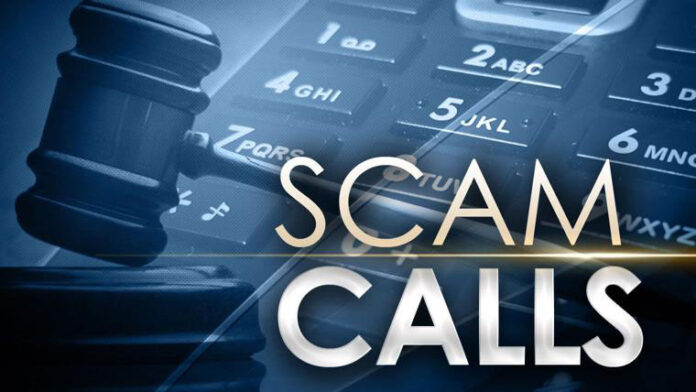HARLINGEN — Longtime local resident Judy Veach receives about 30 to 40 calls on her land line each day.
Most of them are telemarketers, while others are robocalls or spam.
But, one she received last week was a scam and it was scary. She wants those in the area and beyond to know what is happening with these scam calls.
Veach said a legitimate sounding call came in from a person who said they were from the Social Security office and stating Veach was going to receive a significant increase in her Social Security check.
These scams have been going on for years, but it was what the caller said he knew about Veach that was concerning.
“They said we have your bank routing number, but they needed my account number,” Veach said.
The person on the other end of the line told Veach to confirm the routing number.
“That was scary,” she said about the caller saying they knew her bank routing number. “It sounded legitimate.”
Veach knows better and wasn’t tricked into saying anything. She didn’t give the caller any information.
However, she is concerned some may be tricked into providing this banking information or other personal information.
She has had many experiences with scammers in the past few years and has learned what to look for when it comes to these types of phone calls.
So, she did not give out any information, hung up and proceeded to call the Social Security office.
That’s when her worries were confirmed, but she also found out she did the right thing.
Although this particular scam as described by Veach is not listed among the popular scams going on, her call to the Social Security office was proof this one and others are going around.
A call to the 800 number of the Social Security Administration office quickly answers the question regarding the widespread nature of this problem.
The recording states the office has received calls from people reporting fraudulent efforts to impersonate SS personnel in an effort to obtain personnel and financial information.
One of the more successful Social Security scams is one that stole more than $10 million and 35,000 people reported the scam in 2018.
The scammer says your Social Security number has been suspended because of suspicious activity or involved in a crime. The scammer then attempts to “confirm your SSN to reactivate it.” Sometimes the person will say your bank account is about to be seized, but he will tell you what to do to keep it safe.
Oftentimes, the number these scammers are calling from show the Social Security Administration number, but they are faking that number.
According to the Federal Trade Commission website, the Social Security Administration will never call to threaten benefits or ask a person to wire money, send cash, or put money on gift cards.
Also, the FTC states never give any part of your Social Security number, bank account or credit card number to anyone who contacts you.
Join the National Do Not Call List
Register your home and mobile phone numbers with the National Do Not Call Registry. This won’t stop all unsolicited calls, but it will stop most.
If your number is on the registry and you still get calls, they’re probably from scammers ignoring the law. Hang up, and report them at www.donotcall.gov.
How to handle unexpected calls
• Resist pressure to make a decision immediately.
• Keep your credit card, checking account, or Social Security numbers to yourself. Don’t tell them to callers you don’t know — even if they ask you to “confirm” this information. That’s a trick.
• Don’t pay for something just because you’ll get a “free gift.”
• Check out a charity before you give. Ask how much of your donation actually goes to the charity. Ask the caller to send you written information so you can make an informed decision without being pressured, rushed, or guilted into it.
• Don’t send cash by messenger, overnight mail, or money transfer. If you use cash or a money transfer — rather than a credit card — you may lose your right to dispute fraudulent charges. The money will be gone.
• Don’t agree to any offer for which you have to pay a “registration” or “shipping” fee to get a prize or a gift.
• Beware of offers to “help” you recover money you have already lost. Callers that say they are law enforcement officers who will help you get your money back “for a fee” are scammers.
• Report any caller who is rude or abusive, even if you already sent them money. They’ll want more. Call 1-877-FTC-HELP or visit ftc.gov/complaint.




